How To Get No Time To Explain
What's the best time of day to weigh yourself: Is it first thing in the morning or perhaps after you've had that daybreak cup of blessed coffee? Should you be naked, in underwear or, crossed fingers, in your cosiest jammies? Can exercise make a difference? Is a sip of water permitted beforehand or is it all very nil-by-mouth? The questions persist.
But, don't stress. We're here to give you the answers from the experts and a few helpful pointers, too. (You're welcome!)
A quick one before we jump in: Weighing yourself is not for everyone. And, in actuality, there are many people who should steer clear – if you're in recovery from an eating or body image disorder or feel restricted or out of control around the scales, give it a miss. There are plenty of other ways to gauge fitness and health, or track fat loss – different to weight loss – more on both of these later. Be sensible and smart and remember healthy weight loss is underpinned by healthy habits.
Now that we're clear, let's get into it.
What's the best time of day to weigh yourself?
'The single most important factor in tracking weight is to weigh-in at the same time, each day,' says Dr Paul Barrington Chell, surgeon and co-author of The Diet Whisperer.
'You don't want to compare what you weighed at 8 o'clock in the evening to your weight in the morning, before breakfast. If you pick a time, pick first thing in the morning, after you have emptied your bladder and before your breakfast.'
For best results, Dr Chell suggests the following guidelines:
- Make sure the scales are level
- Place scales on a hard surface
- Weigh yourself naked
- If you can't weigh yourself naked, wear the same clothes for consistency
Should you weigh yourself every day?
A simple enough question but an especially nuanced one.
Firstly, weighing yourself daily can be useful to track weekly and monthly averages and help you see trends and patterns:
'You collect more data, which can allow you track your weight more accurately by looking at averages and trends,' says GP, sports medicine graduate and fitness instructor, Folusha Oluwajana.
'You can learn a lot about how different factors cause your weight to fluctuate day to day, such as what you eat and drink, using the toilet, your menstrual cycle or exercise. Some people find this daily information valuable, and if you are trying to lose or maintain your weight you may find it motivating, helping you stay on track.'
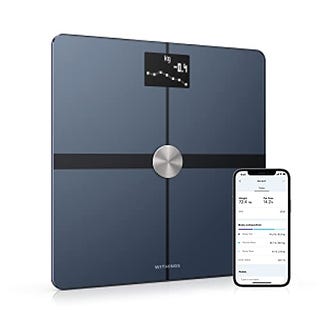
Withings Body+ Wi-Fi Body Composition Smart Scale
Withings amazon.co.uk
£62.95
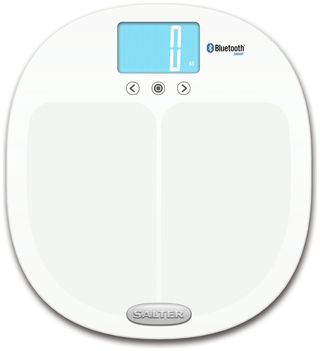
Salter Smart Body Analyser Scale
Salter argos.co.uk
£37.50
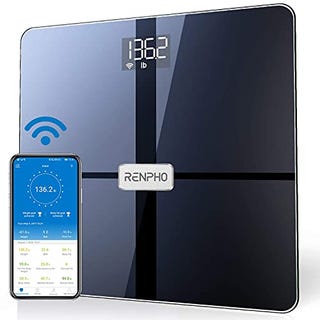
RENPHO Wi-Fi Body Composition Scales
RENPHO amazon.co.uk
£36.99
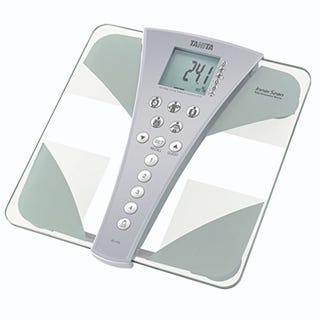
Tanita BC543 Body Composition Monitor Scale
Tanita amazon.co.uk
£52.50
However, weighing yourself daily can also lead to a preoccupation with your weight, causing worry or negative emotions.
'Some people may find the inevitable daily weight fluctuations stressful and this may trigger anxiety and preoccupation with your weight and your diet,' describes Oluwajana. 'This can lead to some unhealthy thoughts and behaviours. In this case, weekly weigh-ins may be more appropriate.'
So, be smart about how often you weigh yourself.
Are you wanting to understand better how your weight fluctuates over the month or are you doing it out of compulsion, control or anxiety? If it's the latter, we suggest taking some time away and, if you're struggling, chatting with a professional.
Reach out to your GP if you feel your reliance on weighing yourself and the has become overwhelming of if you're struggling with thoughts or behaviours of restriction. Alternatively, contact BEAT: The UK's Eating Disorder Charity on 0808 801 0677.
Should you weigh yourself before or after a workout?
Now that we've sussed the best time of day to weigh yourself (in the AM, straight after sleep, before food), let's chat workouts.
If you exercise first thing but also want to weigh yourself, slot it in before you get sweaty as hopefully you'll be drinking water whilst you exercise. This can throw off your weigh in.
Is there a difference between measuring weight and body fat?
Yes. Let us explain.
If you're weighing yourself on standard scales (kg or lbs) you'll be tracking your physical weight. That's everything you're made up of: water, fat, bones, and muscle tissue, given as one weight, all together.
However, if you use smart scales to weigh yourself it's possible to track both your weight and how much body fat and lean muscle tissue you have. This can be helpful if you're trying to lose fat and build muscle (a.k.a 'tone up') as opposed to just losing weight. However, scales aren't the only way to track fat loss. Calipers and in-person tests with a trainer can be great ways to monitor too.
How can your menstrual cycle affect your weight?
Straight up, we know you know how much your time o' the month can impact how you feel. Between period pain (ouch), sleep disruption, water retention, cravings and general feelings of malaise, weighing yourself might be low down on your list of priorities and that's OK. But it is good to remember that your menstrual cycle will impact your body's fluid levels, digestion and appetite and, as such, could cause your weight to spike or fall at different points in the month.
'During the second half of the menstrual cycle, called the luteal phase (between ovulation and your next period) you are more likely to retain water and experience bloating, due to changes in progesterone levels,' explains Oluwajana.
'Your digestive tract may also slow down which makes bloating and constipation more common in this phase and this may also increase the number on the scales slightly. However, when your period starts things should go back to normal.'
Keeping this in mind, weighing yourself at different points in the month can help to give you a clearer idea of what's going on when. Just remember that weight gain before your period is normal and not to beat yourself up about it. It's natural and an indicator your body feels healthy and safe enough to have a period.
What can you do if you don't want to weigh yourself?
Stepping on the scales doesn't have to be the only way you quantify your health gains. Oh no. In fact, keeping an eye on other metrics can give you a fuller, more balanced understanding of how your body is changing or responding to your healthy efforts.
You can:
- Take progress pictures
- Use a measuring tape
- Keep track of how your clothes fit and how you feel wearing them
- Observe sleep quality and duration
- Monitor your physical activity levels throughout the week
These non-scale based observations should give you a good idea of how you and your body are changing in response to exercise, nutrition and stress.

RENPHO Bluetooth Body Fat Scale
RENPHO amazon.co.uk
£20.98
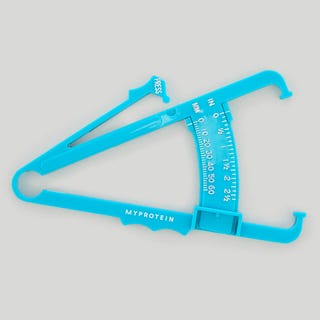
Myprotein Body Fat Calipers
Myprotein myprotein.com
£3.99
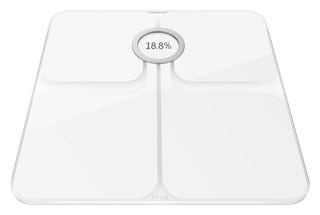
Fitbit Aria 2 Wi-Fi Body Weight Analysis Scale
Fitbit argos.co.uk
£79.20
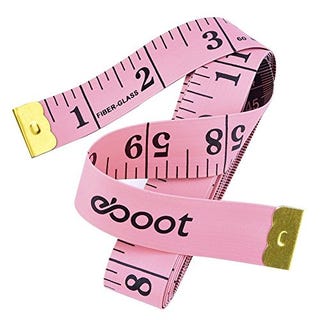
Tape Measure 150cm - Inches and cm
Concept4u amazon.co.uk
£2.50
Cut through the noise and get practical, expert advice, home workouts, easy nutrition and more direct to your inbox. Sign up to the WOMEN'S HEALTH NEWSLETTER
Morgan Fargo Morgan is WH's digital fitness writer with a penchant for brutal HIIT classes and thick post-workout smoothies.
This content is created and maintained by a third party, and imported onto this page to help users provide their email addresses. You may be able to find more information about this and similar content at piano.io
How To Get No Time To Explain
Source: https://www.womenshealthmag.com/uk/fitness/fat-loss/a34120740/best-time-weigh-yourself/
Posted by: millernoing1960.blogspot.com

0 Response to "How To Get No Time To Explain"
Post a Comment